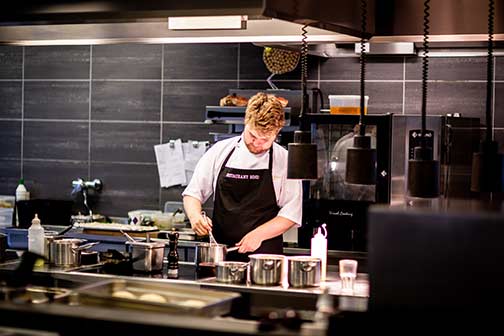
Commercial kitchens are busy places, and plumbing concerns can quickly turn into a nightmare for chefs, owners, and employees. Plumbing issues can lead to lost productivity, damage to essential equipment, and safety concerns for employees and customers.
Here are some common plumbing concerns that you should be aware of when running a commercial kitchen and some strategies to address them.
1. Clogged Drains
Drains in a commercial kitchen can quickly become clogged with food scraps, grease, and other debris. A clogged drain can lead to the slow draining of water, which can make it difficult to clean dishes and can increase the risk of flooding.
The best way to prevent clogged drains is to use a strainer to catch food scraps and other debris. Regularly cleaning the strainer, drain, and piping can also be helpful.
If the drains become clogged, turn off the water to the sink and use a plunger or drain cleaner to try to remove the obstruction. If these DIY measures fail, hire a commercial plumber to properly clean and clear the drainage system.
2. Leaks and Dripping Faucets
Leaks and dripping faucets can increase your water bill and damage fixtures and surfaces in a kitchen. Leaks can also lead to a slippery floor, which can be dangerous for both employees and customers.
Regularly inspect and maintain your plumbing fixtures to check for any leaks or drips. Tighten loose fittings and replace any damaged parts. A professional plumber can also help with a more comprehensive inspection and repair if needed.
3. Water Temperature and Pressure Issues
In a commercial kitchen, having consistent water temperature and pressure is essential for washing dishes and cleaning surfaces. Low water pressure, fluctuating water temperature, and inconsistent hot water supply can impact the kitchen's productivity and affect food safety.
As a preventive measure, make sure that your water heater is regularly serviced and maintained. Check for any leaks and ensure the pipes are properly insulated to prevent heat loss. Run water regularly to keep pipes from freezing and ensure proper water flow.
If you experience ongoing water temperature or pressure problems, hire a commercial plumber to investigate and find the root cause of the issue. It could be a problem with the thermostat, sediment build-up in the water heater, or other plumbing-related causes.
4. Grease Trap Maintenance
Grease traps are essential in a commercial kitchen to prevent the buildup of fats, oil, and grease in the plumbing system. Regular cleaning and maintenance of a grease trap can prevent overflowing and reduce unpleasant odors.
Make sure to clean the grease trap on a regular basis and dispose of the grease properly. Keep track of the frequency of grease trap cleaning, as the frequency may vary depending on the volume of grease and waste produced.
5. Backflow Prevention
Backflow prevention is essential in a commercial kitchen to prevent contaminated water from entering the water supply. Backflow can occur when there is a change in water pressure or if the water supply is contaminated.
Have a backflow prevention device installed in your plumbing system to prevent backflow and ensure compliance with local regulations. Regular maintenance and testing of the backflow prevention device can ensure that it is working correctly.
Conclusion
Plumbing concerns in a commercial kitchen can be costly and time-consuming if not addressed promptly and correctly. By taking preventive measures and having regular maintenance and inspection, you can keep your plumbing system running smoothly, reduce downtime, and ensure a safe and sanitary environment for your employees and customers.
Partner with a professional plumber for more comprehensive plumbing inspections, repairs, and maintenance. With their expertise and experience, they can help you address any plumbing concerns proactively and efficiently.

































